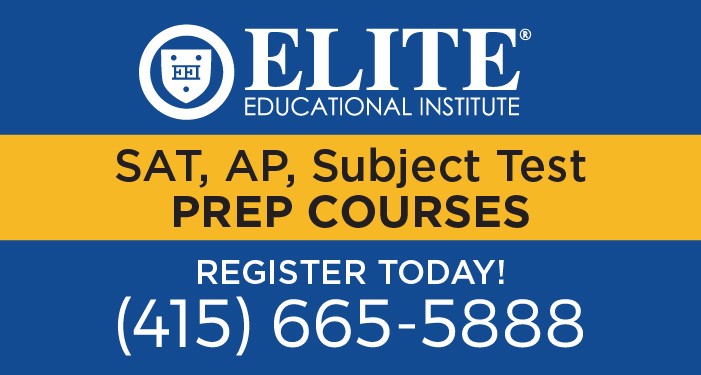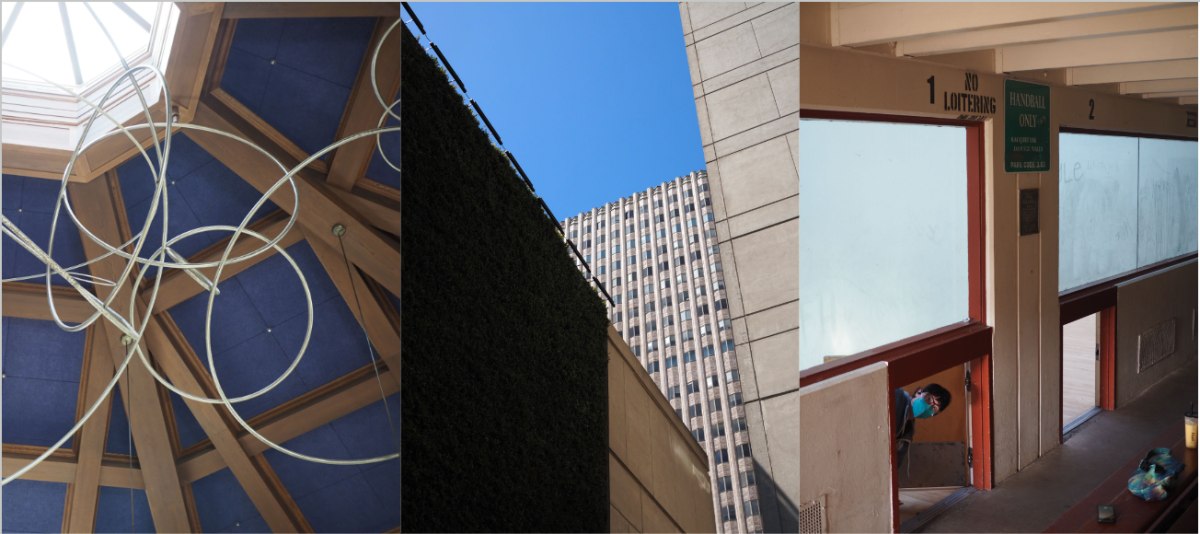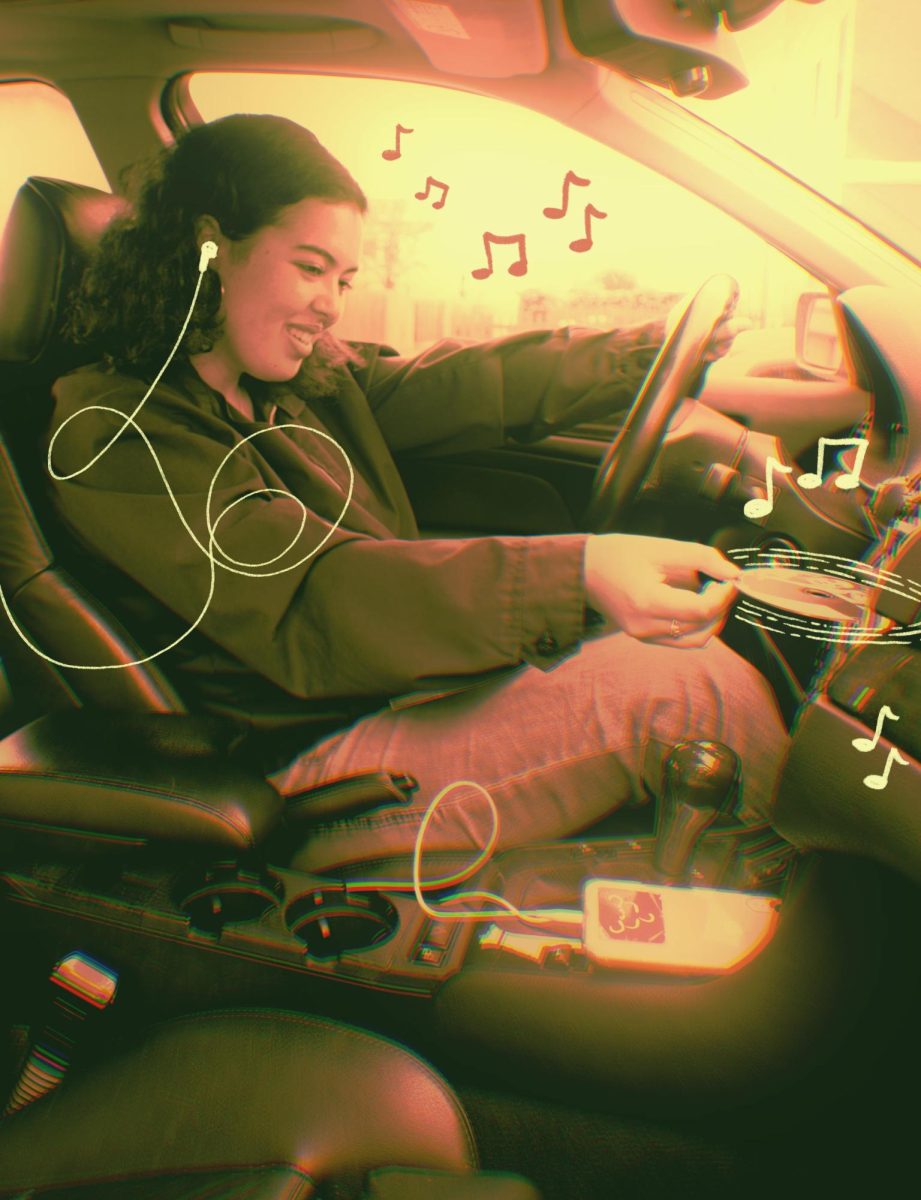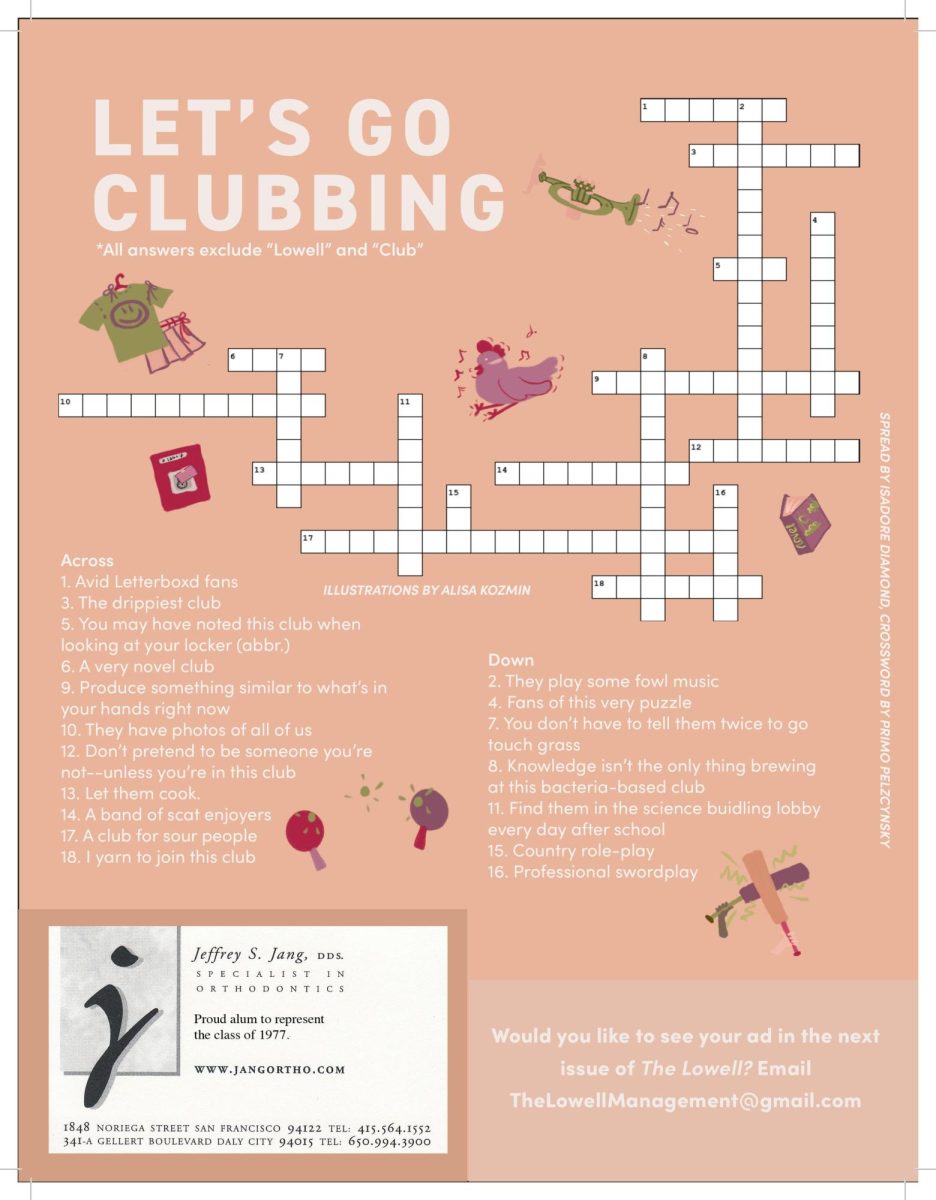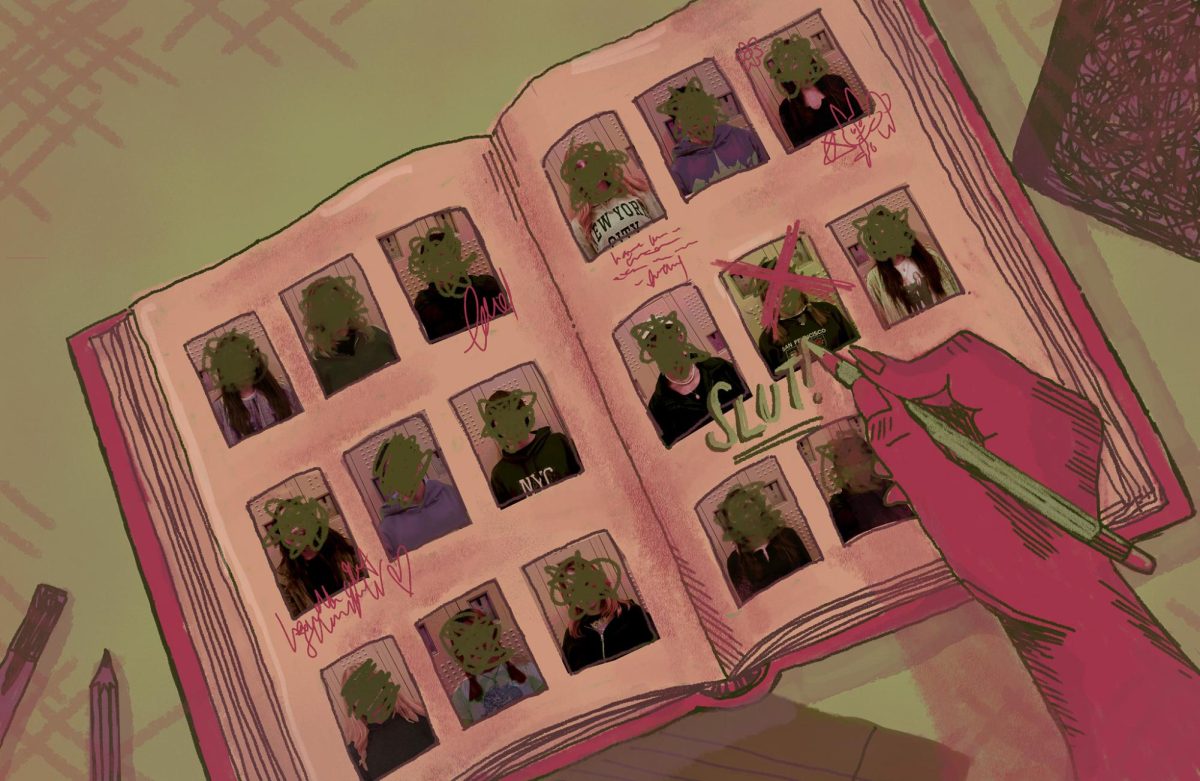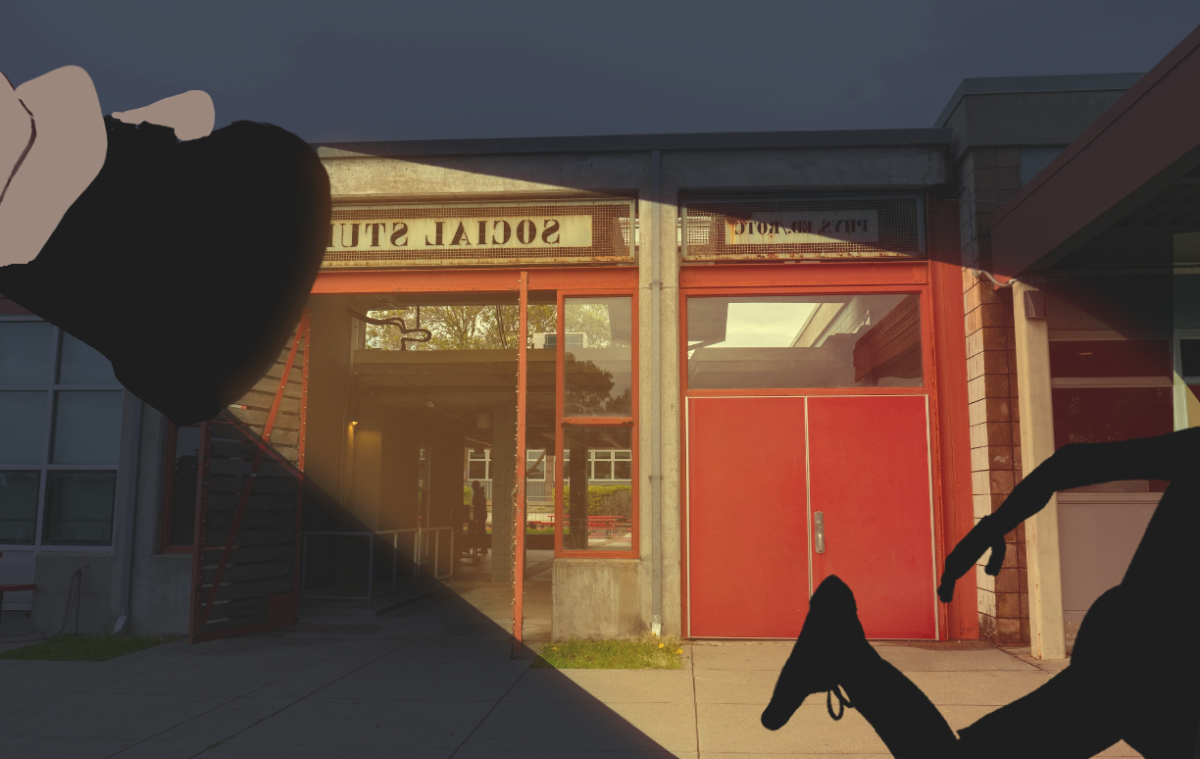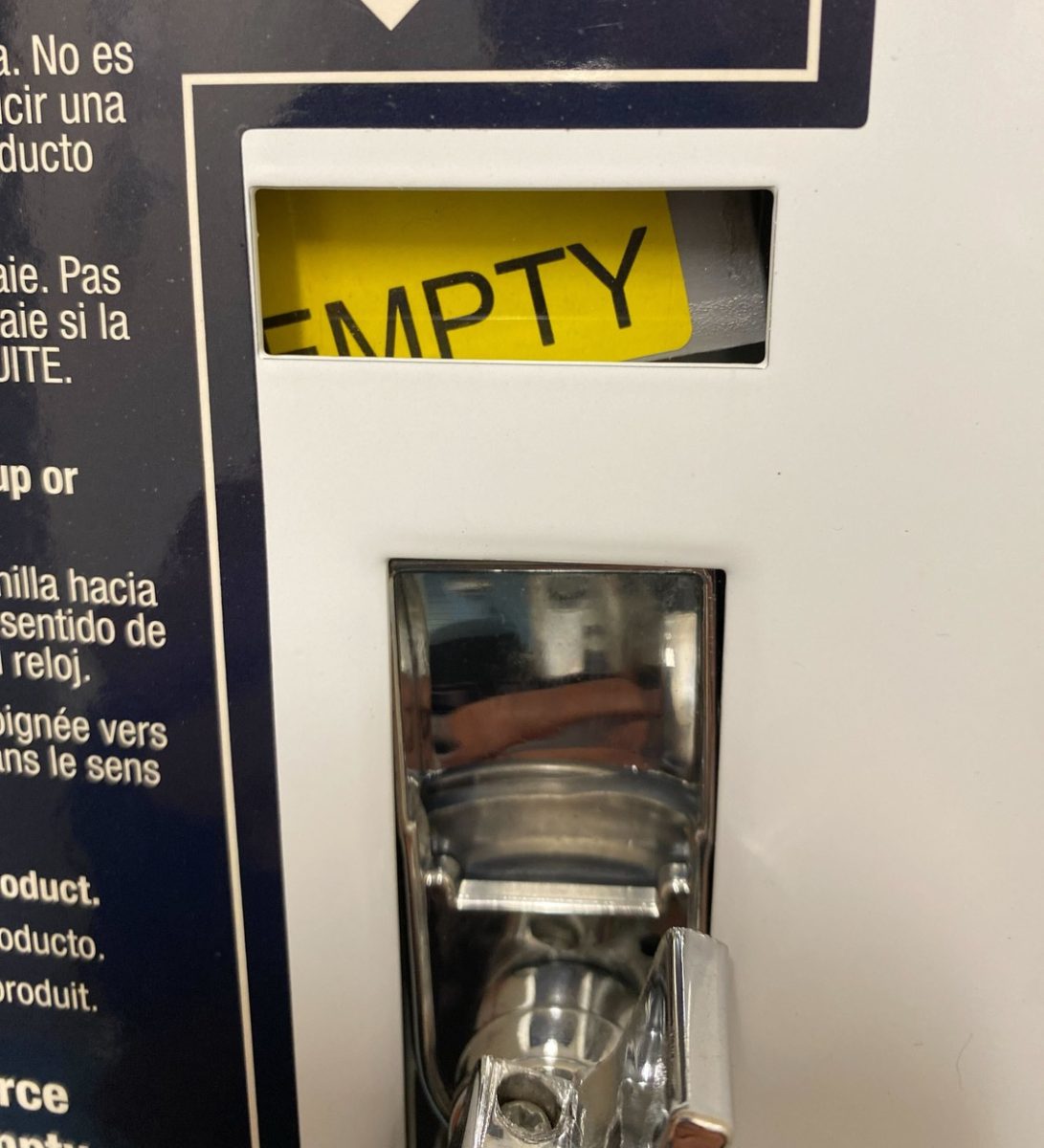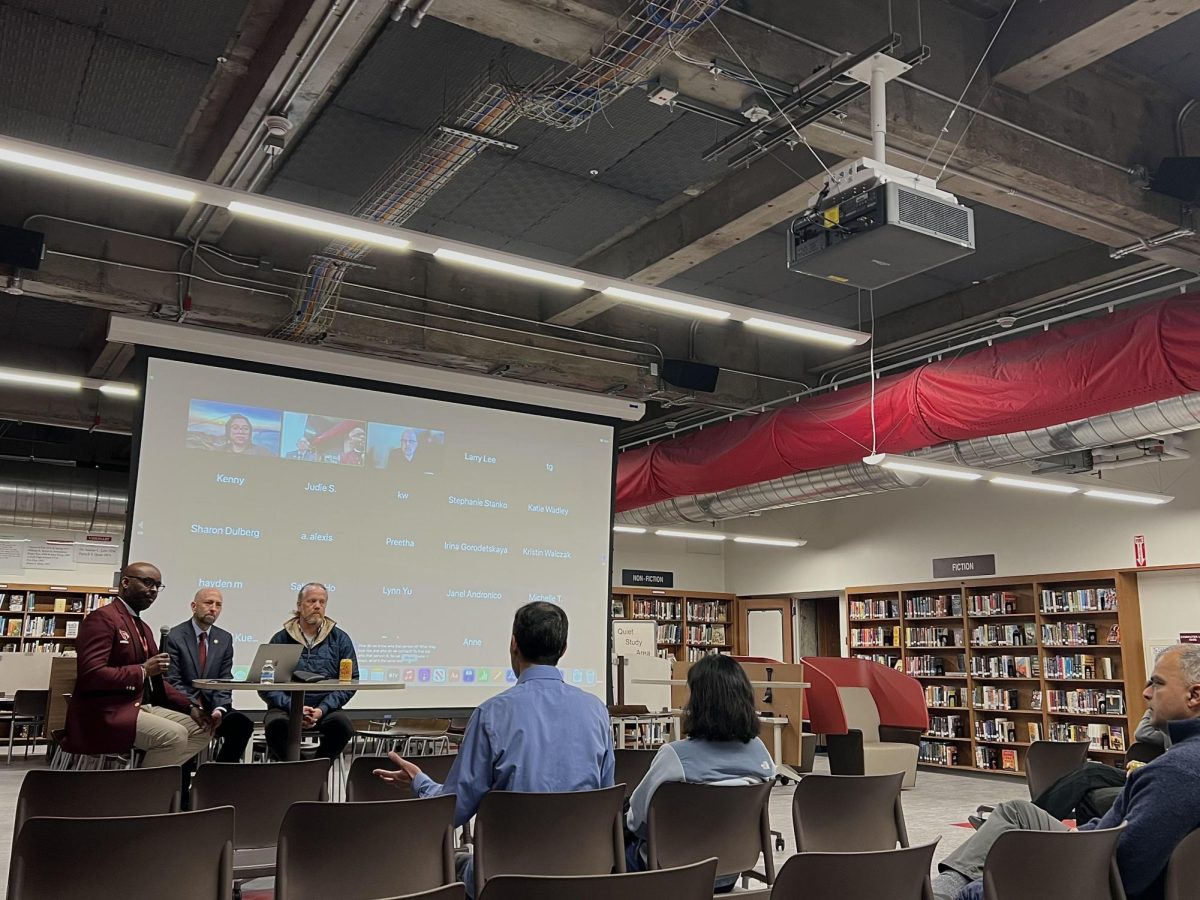By Sofia Woo and Sarah Magen
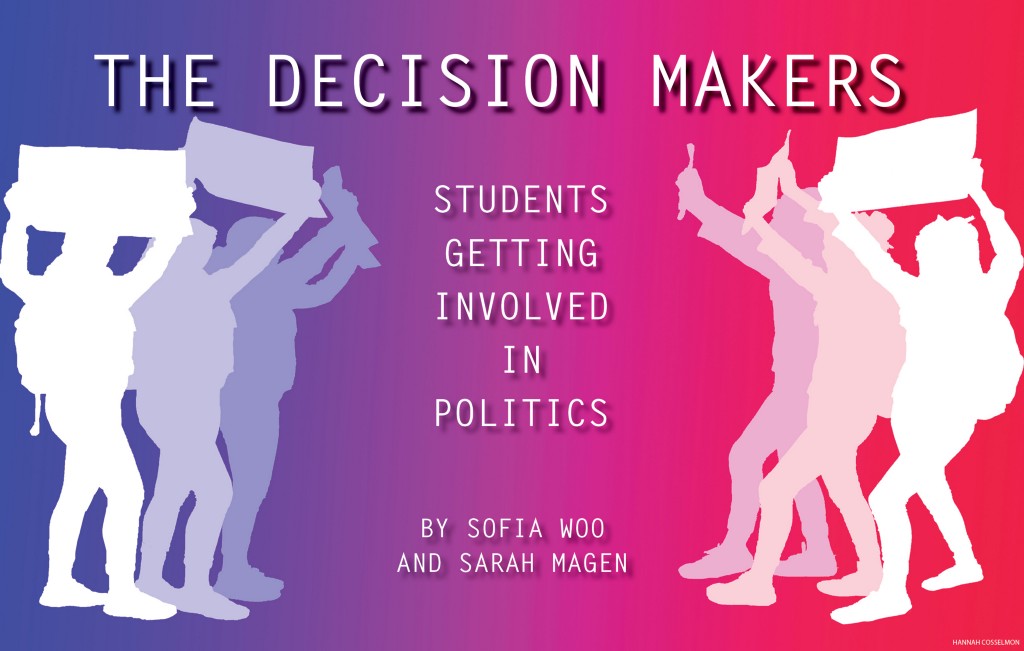
“Trump is the epitome of the American Dream,” senior Allan Lei said. This opinion is not something that the average Lowell student would say. But Lei is not the typical Lowellite. Lei was the Northern California Millennial Lead of the Donald Trump campaign. He coordinated walks and went door-to-door canvassing during the primary and general elections in California and Pennsylvania.
Although his opinions are different from many at Lowell, Lei is not afraid to voice his opinions, but rather takes advantage of the fact that he is in the minority to further emphasize his views. “I get criticism from a lot of the school,” he said. “People call you out for being racist, homophobic, xenophobic.”
Lei believes that some of his peers have been “brainwashed by the liberal media” and by the “education system that’s very liberal in and of itself, so they don’t see the other side [of the debate].” But Lei said he feels like it’s a good thing because as a conservative who is exposed to liberal ideas all the time, he has something to discuss with others.
The outcome of the 2016 presidential election has proved that the American political climate is changing. Around the country people are protesting and voicing their opinions across all platforms with the recent nationwide actions concerning Trump’s policies on immigration, in which he banned entry into the U.S. of people from seven Muslim-majority countries. The debate over education has also erupted in the wake of Trump appointing Betsy DeVos as the Secretary of Education, who has repeatedly denounced public schools. Other issues such as conflicts of interest, claims of voter fraud without evidence, the national security staffing problem, and border control will affect a large scale of Americans and people worldwide.
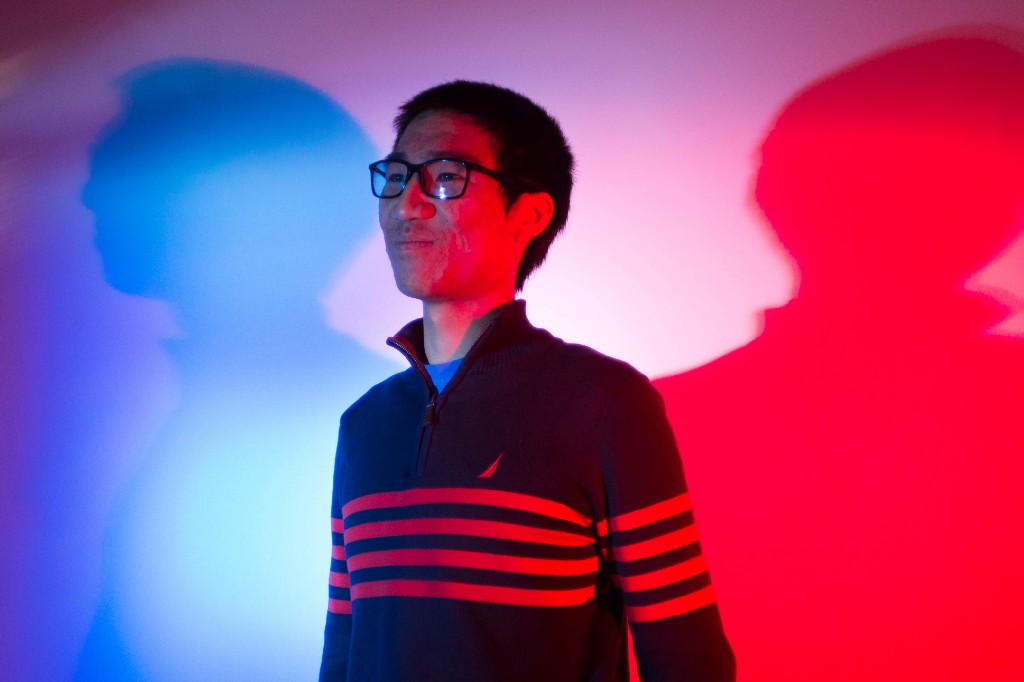
The Lowell conducted a survey on Jan. 25, after the inauguration of the new president, to better understand what influences students’ political opinions, where they identify themselves on the political spectrum and how involved in politics they are. The survey polled two registries from each grade.
Where do Lowell students tend to fall on the political spectrum? Forty-five percent of students identified as liberal or liberal moderate-leaning. Ten percent identified as moderate. Four percent identified as conservative or conservative moderate-leaning while 33 percent of students answered “don’t know.”
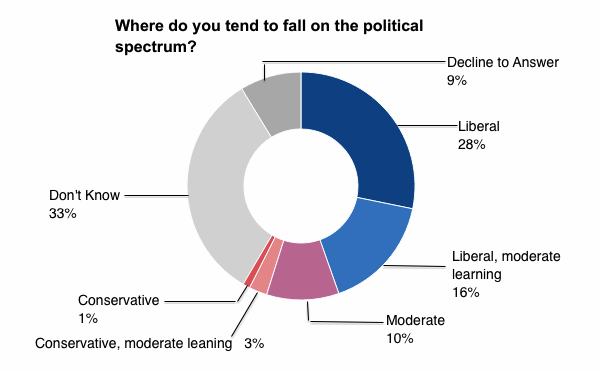
In what ways have Lowell students been involved in politics since starting high school? Twenty-one percent said they had attended a campaign rally or protest, and 12 percent said that they had volunteered for a campaign (such as phone banking, canvassing, etc.) However, 69 percent of students answered that they have not been involved in politics since starting high school.
When asked if students intended to be involved in politics in the next year, only 35 percent said that they intend while 50 percent answered “neutral” and 16 percent disagreed.
Students getting involved
Lei’s involvement in the 2016 presidential race began with working on Republican candidate Ben Carson’s campaign. After Carson dropped out and Trump accepted the nomination, an employee who had worked on Carson’s campaign with Lei gave him a position on Trump’s. During the primaries and general election, Lei would go around the Bay Area to coordinate precinct walks, organize rallies and promote Trump. “We were given specific doors to knock on that were registered Republican because it’s mostly to get out the vote,” Lei said. “Some people aren’t motivated enough to vote for [Trump] so we have to remind them.”
“I wouldn’t really call it politics. For me it’s just advocacy, just learning about different things in my community.”
Lowell students’ political engagement is not only limited to national campaigns. They are involved in local causes, such as interning with district supervisors, working on local campaigns, and taking on positions on the city’s Youth Commission and the school district’s school district’s Student Advisory Council.
Senior James Sutton was introduced to politics at a young age. With his father being an election lawyer, Sutton would frequently go to rallies and see his father’s clients. His interest in politics accelerated in middle school when he started to follow the news. In high school, he has interned for San Francisco District 2 Supervisor Mark Farrell for two summers. Sutton answered phones calls, dealt with constituents and wrote newsletters. But his political interests have reached beyond internships. He is currently on the youth committee campaigning to redo the tennis courts at Golden Gate Park, fundraising and getting the campaign through the planning commission.
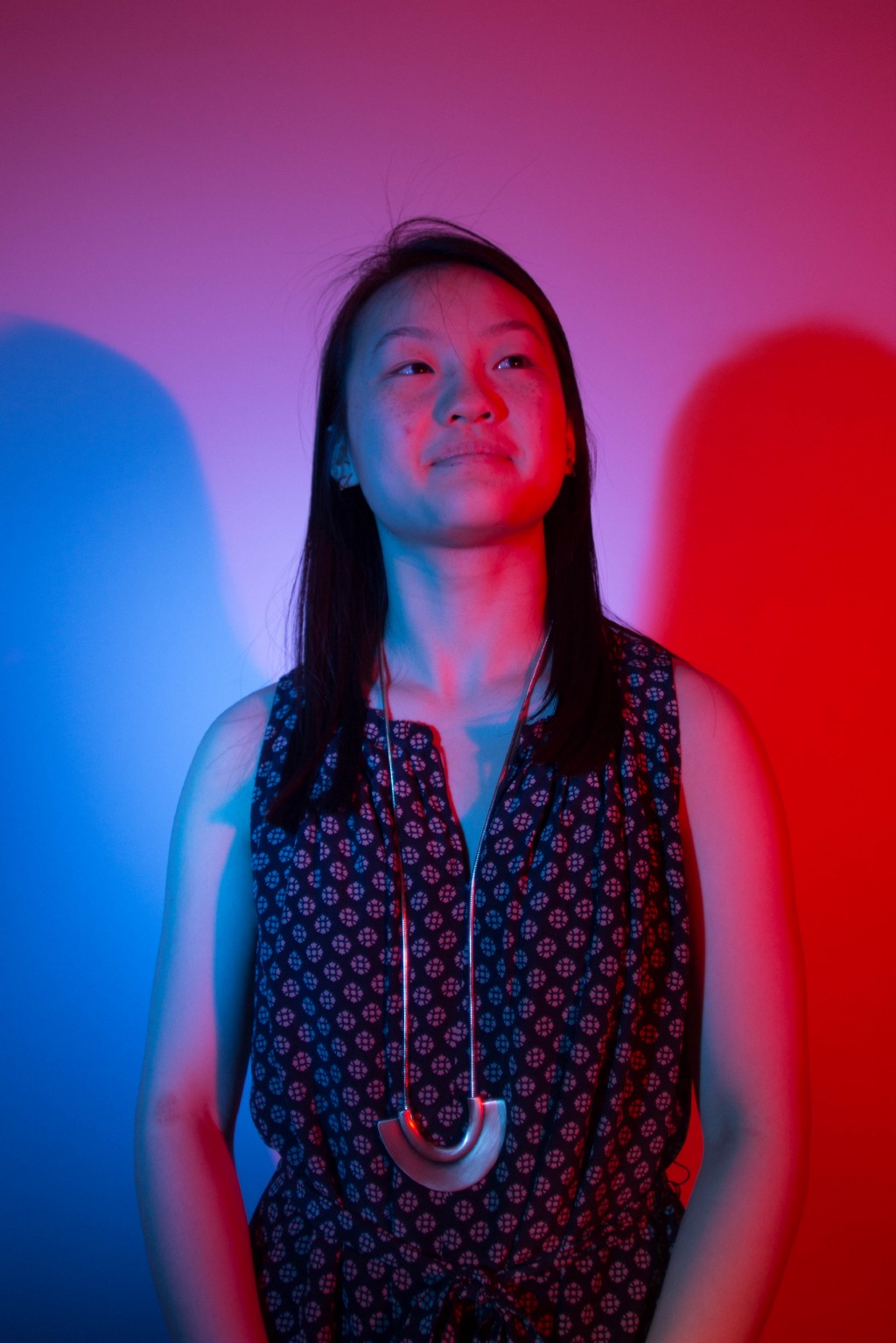
Senior Jessica Eng, Class of 2017 president, is a student delegate of the SFUSD Student Advisory Council. As a student delegate, she sits in the Board of Education as an advisor about the opinions of the students. Last year, Eng joined the Vote16 campaign, also known as Prop. F, which championed giving 16- and 17- year-olds the right to vote in city, county and school board elections. She joined because of her strong opinions on the city concerning gentrification. The “Vote16 was one way for me to show the city that youth have opinions that matter,” Eng said.
Sophomore Joshua Park also worked on the Vote16 campaign, as media director. He joined the Youth Commission, where he eventually became chair of the Civic Engagement Committee. The Youth Commission consists of 17 young San Franciscans who work on city policy issues, such as budgeting priorities and other goals that they want to pursue to help young people in the city.
Being in the Youth Commission and the Vote16 campaign has allowed Park to grow his leadership experience. “I wouldn’t really call it politics,” Park said. “For me it’s just advocacy, just learning about different things in my community.” Currently, there is a project called L Rapid, which is updating the L Taraval MUNI line by getting rid of certain stops and trying to make it safer for pedestrians in the hopes of completing Vision Zero, SFMTA’s goal to eliminate all fatal pedestrian accidents by 2024. But this will require removing parking spaces, creating problems for businesses on Taraval street and a political conflict. “I think it’s kind of crazy that people don’t know about this line,” he said. Park hopes his experience with civic engagement will inspire others to take action and be aware of their community.
“It was definitely an eye-opening experience to see how it all goes down.”
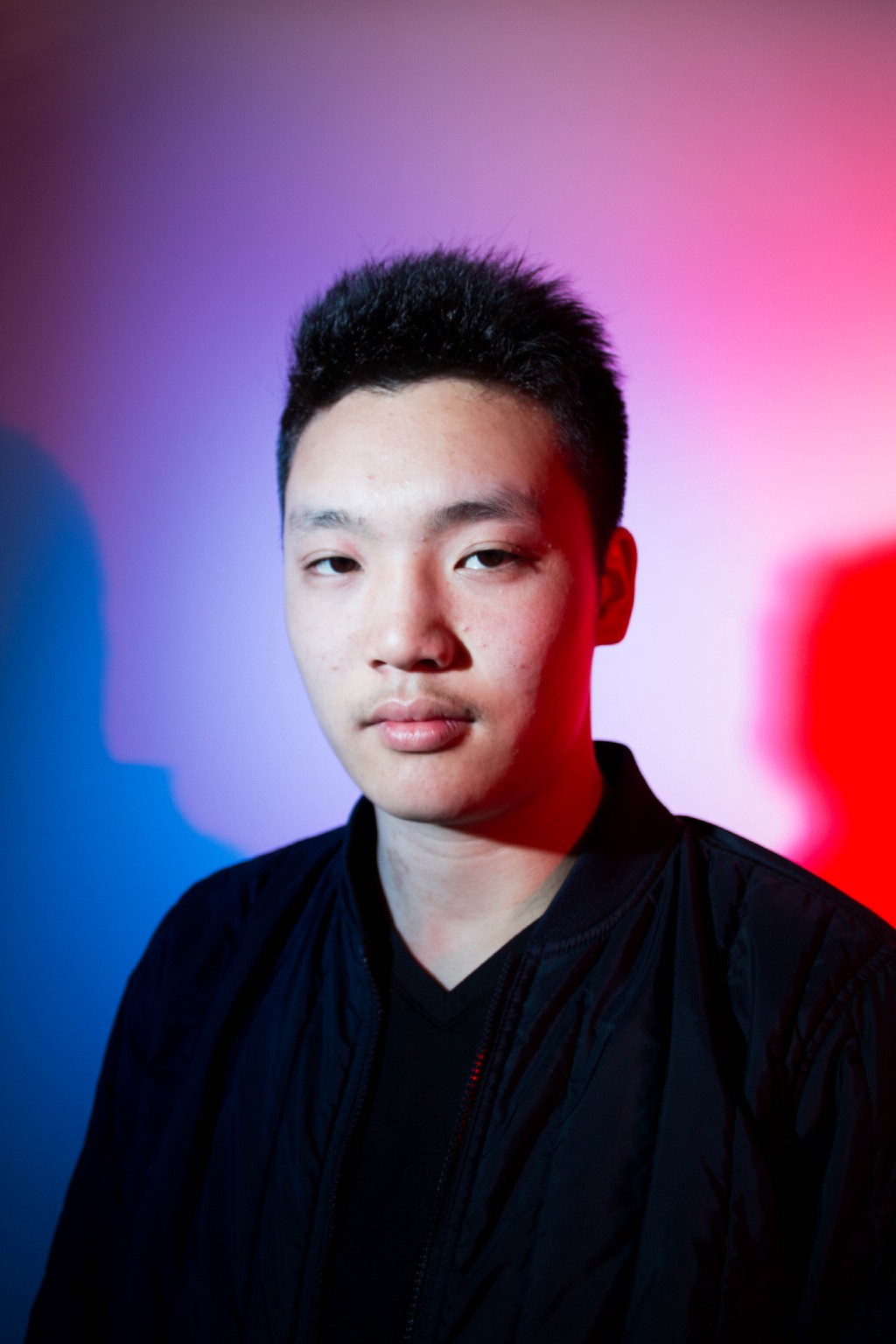
During the election, senior Harrison Linder became involved in a local campaign, Prop. V, through his friend’s dad who connected him with the leaders of the campaign. Prop. V, also called the “soda tax,” advocated for taxing all sugary beverages at a rate of one cent per ounce in San Francisco. The proposition, which passed, was opposed by The American Beverage Association, who labeled it a “grocery tax.”
Linder worked as a community organizer by canvassing — soliciting votes—and finding out how people vote and doing surveys for Prop. V. On the campaign trail, Linder went around Noe Valley going door to door or calling voters on the phone. “You want people to be aware of your cause and you want them to vote for your cause,” he said.
Linder believes that youth involvement in politics is crucial to make a change in society. For him, campaigning has made lasting impressions on his views towards the political system. “It was definitely an eye-opening experience to see how it all goes down, and to see how a campaign functions,” he said.
Influences on students’ political views
These students were already informed and passionate about issues, but how do students learn about politics? What influences their opinions? In The Lowell’s Jan. 25 survey, family was the biggest influencer at 28 percent, followed by social media at 15 percent, and friends at 14 percent. Two percent said that teachers influenced them the most and another two percent said social studies and history classes.
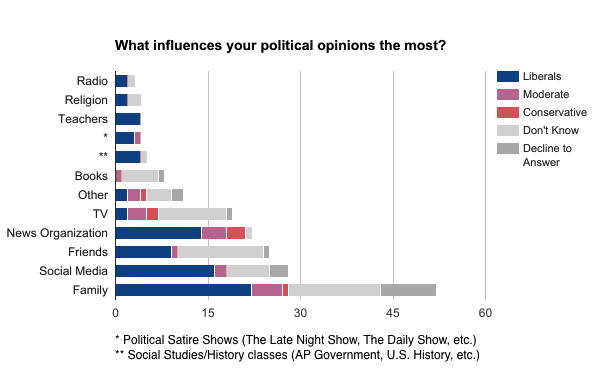
Family
Not only did 28 percent of students say that family was their biggest political influence, 69 percent selected “family” as one of the factors that influences their political views. Why is family the biggest influence?
When AP Government teacher William Sloan turned 18, he couldn’t wait to vote because his parents, who were activists, constantly encouraged him to be politically involved, especially in Democratic issues. “I remember my mother saying that when I register, write down Democrat,” he said. “I thought about it, and looked at the other political affiliations and what I understood their position on the issues at hand were, I thought about what we did, in terms of those same issues and candidates running for office, the Democrats beliefs and values were more consistent with my political exposure. I register as a Democrat.”
Now, as a parent, Sloan makes sure to bring political discussions to the dinner table. “That political socialization comes from the home,” he said. “It has transferred to my sons, they were taught to know the issues and vote responsibly. They too are involved, attend rallies and vote consistently.”

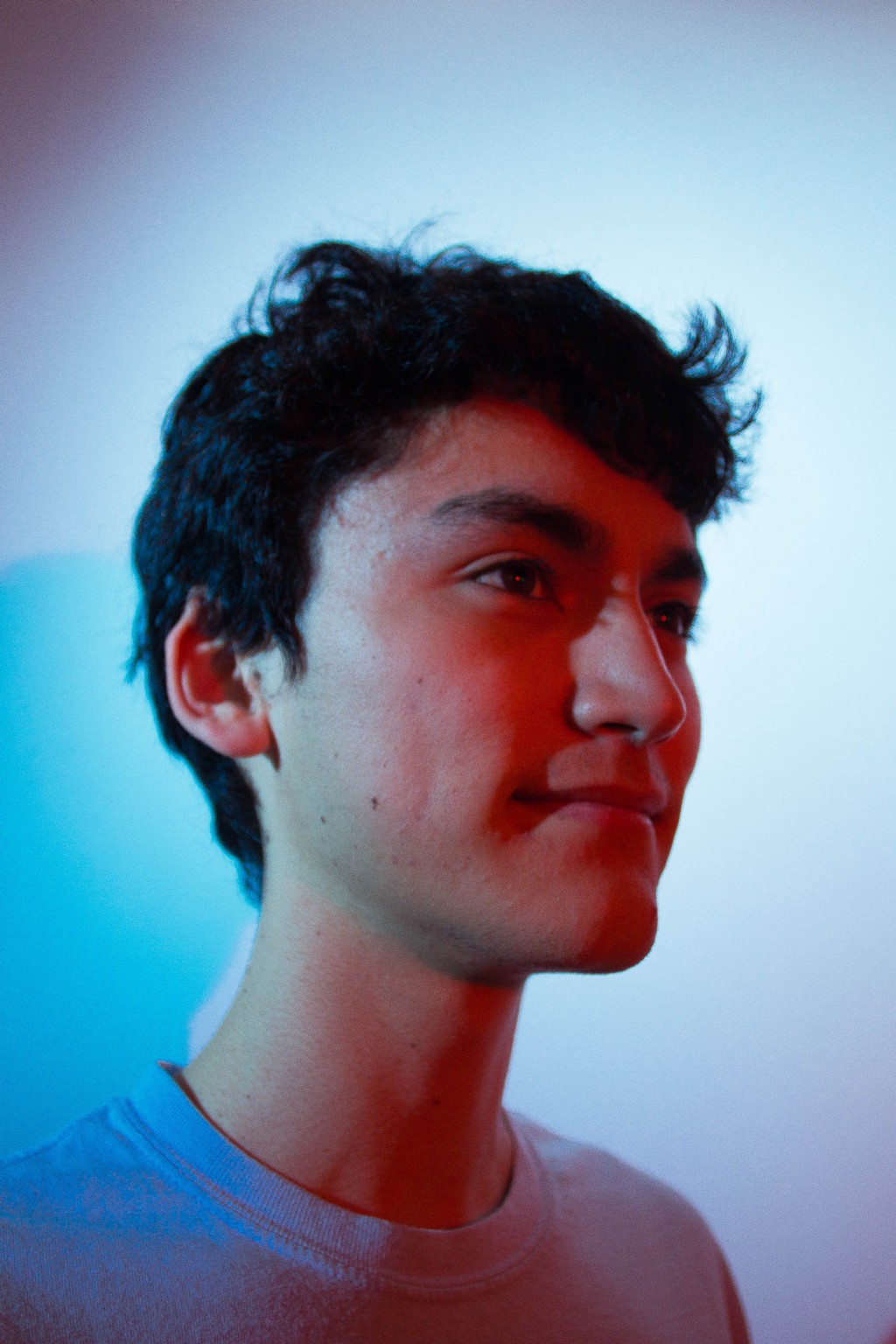
Sutton too was exposed to politics at a young age because of parents’ influence. When he was four years-old, he met Kamala Harris, who is now the US senator from California. Later, his father took him to political gatherings and fundraisers, where he got to meet other clients, like Gavin Newsom, who is now Lieutenant Governor of California.
His father has also influenced the way Sutton approaches politics, such as being skeptical when looking at either side of an argument. In seventh grade, he found out that SFUSD was planning to cut the honors track from public schools to promote equity. “Everyone was for this, because no one wants to oppose equity,” he said. “But my dad took a step back and said, ‘Wait a second, let’s look at this. It looks like we’re picking on the high-achieving kids.’”
Family also plays an essential role for Lei. Lei grew up with “legal Chinese immigrant” parents, who brought their traditional values with them from China to America. From fiscal policy to social issues, the Lei family consider themselves loyal Republicans. Whenever Lei talks to his parents about politics or listens to their commentary on the news, he tends to agree with almost everything they say.
Lei’s parents taught him that “the money you earn is the money you keep,” he said. “That’s why I consider myself a fiscal conservative and why I am against high taxes.”
Lei’s parents taught him that “the money you earn is the money you keep,” he said. “That’s why I consider myself a fiscal conservative and why I am against high taxes.”
Lei recalls his father comparing the low property taxes in China to the higher property taxes in San Francisco. On income tax, his dad told him that he believes it’s unfair that “the more you work, the more taxes you have to pay in America,” Lei said.
Media
Media also plays a huge role in influencing political opinions. Over the summer, Lei formed his opinions of Trump by watching conservative political commentator Sean Hannity on Fox News constantly promote him.
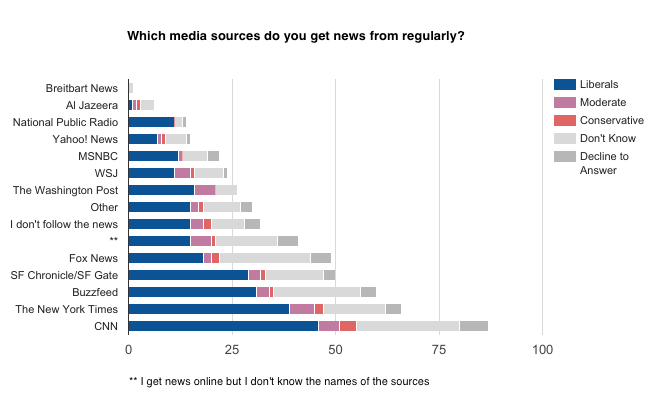
In the survey, The Lowell asked students which media sources they regularly receive news from. CNN, a moderate news source, was the most popular source at 47 percent. The New York Times, a more liberal news source, came second at 35 percent, followed by the SF Chronicle and SFGate at 27 percent and Fox News, a conservative news outlet at 26 percent. Ten percent said that they do not follow the news.
With the increasing accessibility of social media and the internet, 66 percent of students said they receive news from sources that are exclusively online, with 32 percent following Buzzfeed, four percent Al Jazeera, eight percent Yahoo! News and less than one percent Breitbart.
In the survey, 22 percent also said that they get their news online but do not know the names of the sources. After the recent conflicts over “fake news” influencing the presidential election, students’ lack of awareness of where they receive their news is a pressing issue.
Last month, lawmakers in California introduced Senate Bill 135 in reaction to the explosion of fake news. The bill would add media literacy training to social science standards for first through twelfth grades, distinguishing which news stories are credible, according to The Sacramento Bee.
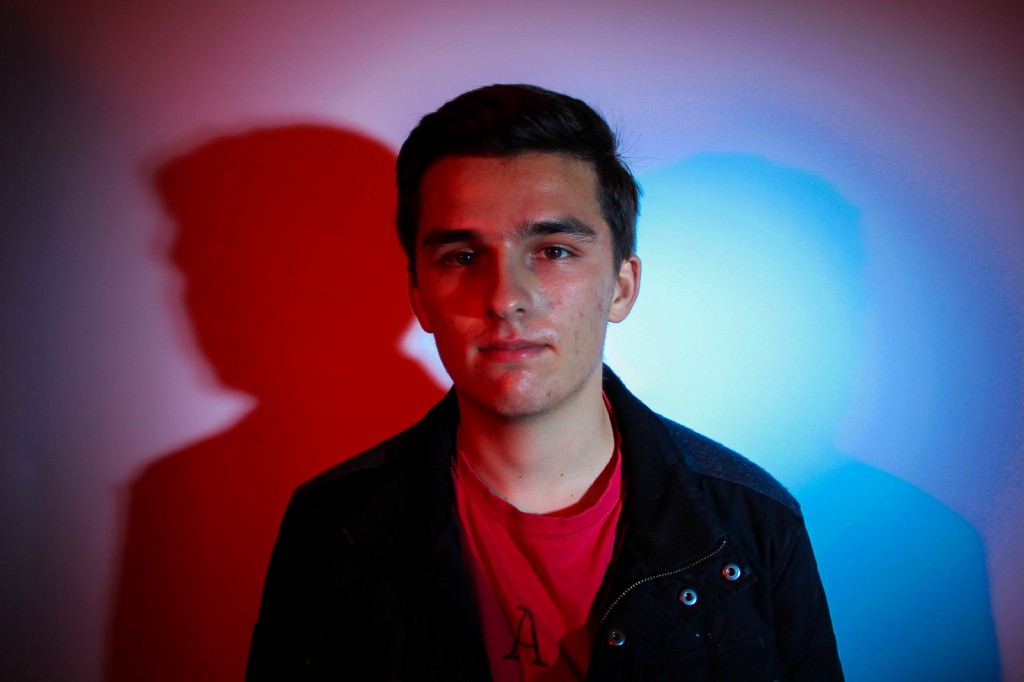
School and civics education
Media literacy is an essential part of civics education. But how much does school actually influence students’ politics? According to the survey, only about four percent of all students surveyed said that teachers or social science classes influenced their political opinions the most.
Seeing this low percentage, could schools do more?
The school district requires seniors to pass one semester of American Democracy to graduate. The current California state standards for the class require that the course pursue a deeper understanding of the American government by studying relationships between branches of government, the fundamental components of a civil society, such as individual rights, and the influence of media on American politics. These standards state that their objective is to prepare students for future civic engagement.
At Lowell, seniors can take not only American Democracy, but also AP Government, which includes Comparative Government and U.S. Government and Politics.
Does taking these civics classes as seniors affect their engagement in politics? It might be because they are already or almost eligible to vote. But in the survey, on the question of political involvement, 47 percent of seniors answered that they have not been involved in politics since starting high school, in contrast to 76 percent of juniors, 73 percent of sophomores and 73 percent of freshman.
Understanding current events
Since Trump’s election, schools across the country are experiencing an influx of civic engagement for the first time in years, according to the New York Times. Civics teachers at Lowell are starting to notice that their students are more interested in class.
American Democracy teacher Lauretta Komlos’ class has frequent current events discussions on subjects like the effects of Obamacare and the influence of fake news in the recent election.
One student “said that she was black, gay and disabled, and that she did not think that Trump’s America would be a welcoming place for her.”
Komlos has noticed a newfound interest and motivation concerning politics in more of her students — especially amongst young women. “When people approach me to talk about the election, it’s women that are on the cusp of adulthood that are now confronted for the first time with an administration which in their minds is hostile to their cause or their advancement,” she said.
In a class discussion held by American Democracy teacher Adam Michels, one student “said that she was black, gay and disabled, and that she did not think that Trump’s America would be a welcoming place for her,” Michels said. “I told her that I was confident that despite whatever happens with Trump, San Francisco would remain a place where she could feel at home.”
Recently, San Francisco filed a lawsuit against Trump because of his executive order cutting off federal funds for sanctuary cities like San Francisco. When the issue of immigration and a wall along the Mexican border arose during class, some of Michels’s students shared their personal experiences. “One of them actually spoke up and said ‘My grandfather moved to this country illegally,’” Michels said.
But Komlos also has students on the other side of the spectrum, who are excited about the administration. “They are few and far between but often they are the most vocal,” Komlos said.
With the discussions, an increased sense of openness about politics has developed in students. “I always get students who say they feel more comfortable talking about politics now,” she said.

Political engagement
In Komlos’ class last fall, she promoted political engagement by requiring her students to work on political campaigns as an assignment, hoping this participation will form lifelong habits.
Seniors Bryanna Shu and Brian Ngo, who were two of Komlos’ students, were introduced to civic engagement through that class.
Two weeks before Nov. 8, Shu and Ngo were parading along Market Street, volunteering at a rally that they organized with others in a youth group to promote Proposition 55, which would prevent public education budget cuts by raising the income tax on those who make over $250,000 annually. During the rally, Shu and Ngo were able to experience their hard work put into action. Ngo, who was the “Master of Ceremonies” and part of the action team, organized and facilitated rallies by keeping the large crowd upbeat. Shu focused on outreach, such as phone banking and talking to people on the street, and promoting Prop. 55 through Facebook. During the rally, Ngo introduced the skits, interactive murals and guest speakers, such as president of the United Educators of San Francisco Lita Blanc and District 1 Supervisor Eric Mar, to the crowd. “I feel that a civics class is really important in letting us know that there’s more out there by showing us ways to get involved and having your voice be heard and influencing the world around you,” Ngo said.
Senior Andrew Poli, never had a real interest in politics before taking Komlos’ American Democracy class. Poli chose to volunteer for Proposition V, the campaign for a tax on sugary drinks, also known as the “soda tax.” On the campaign, Poli phone banked — collected voter data to get out the vote — and tried to persuade people to vote for the proposition over the phone. When Poli was at the Prop. V headquarters in the Mission, he noticed and felt the passion that others expressed towards the campaign. “Their energy made me more excited and work harder,” he said.
Volunteering for the Prop. V campaign made Poli more aware about politics and changed the way he viewed the political system. “When I was phone banking, I talked to someone who was against the proposition and I eventually convinced them why the proposition was good,” he said. “It made me feel like I had the power to convince people to vote. It gave me more faith in the system because I participated in a campaign that passed and I made a change in society that will last.”
“It gave me more faith in the system because I participated in a campaign that passed and I made a change in society that will last.”
With the election over and a new semester, Komlos plans to adjust her curriculum and have her students get involved with political issues such as the anti-Trump movements, the Women’s March and Black Lives Matter. They discuss current events like free speech and the conflicts over alt-right conservative figures like Milo Yiannopoulos.
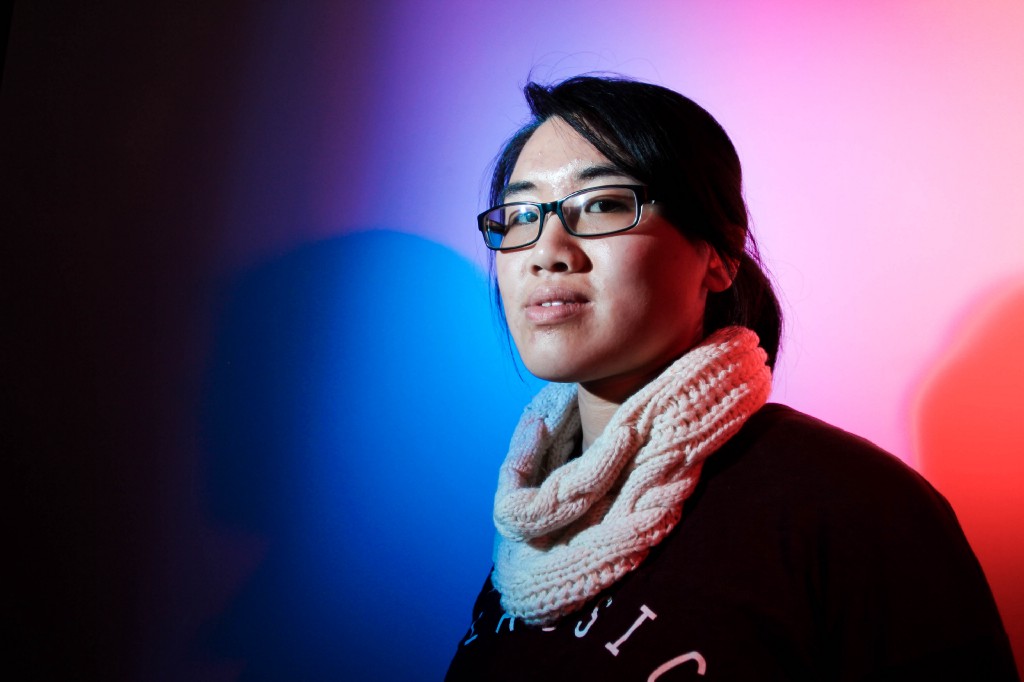
Voting
With a quality civics class, students are not only more likely to be politically engaged, they’re also more inclined to vote. According to a study conducted in 2013 by Tufts University, those who had taken high-quality civics courses, defined as classes that included projects in the community and current events discussions, were much more likely to vote in the 2012 presidential election. One way to boost voter turnout is to offer students the chance to pre-register, which they can do if they are 16, and which will go into effect automatically when they turn 18. According to a 2009 study from George Mason University on voter pre-registration in Hawaii and Florida, youth who are preregistered are more likely to vote in the future. With the upcoming 2018 elections, voter pre-registration is even more important, as all of the House of Representative seats are up during this election, and low voter turnout is common during midterm elections. With the ability to introduce laws and legislation, these new candidates could make a big difference in people’s lives. Here at Lowell, there are a number of teachers that already offer voter preregistration.
In April 2016, the San Francisco Board of Education, in support of the Vote16 campaign, passed a resolution placing more emphasis on the American Democracy course, encouraging the class to offer voter preregistration and encouraging staff to appoint student leaders in each grade level to facilitate civic engagement at their school site leadership and student government meetings.
Expanding civics education
Here at Lowell, civics classes are only offered senior year. Though that is around the time many students become eligible to vote, many students may not feel confident or not have enough faith in the political system to vote without much political knowledge prior to senior year.
Political engagement is habitual, so learning about the importance and the way government functions is vital. If we really want more students to be motivated to shape their futures or to just understand what their future may look like, then Lowell should find a way to offer civics classes to all grades, not just seniors.
Some students have already participated in demonstrations protesting Trump. This shows that there is a possibility for young people to develop interests and get involved in political affairs even if they weren’t interested before. “We have the ability to change the community even if we aren’t old enough to vote,” Shu said.
